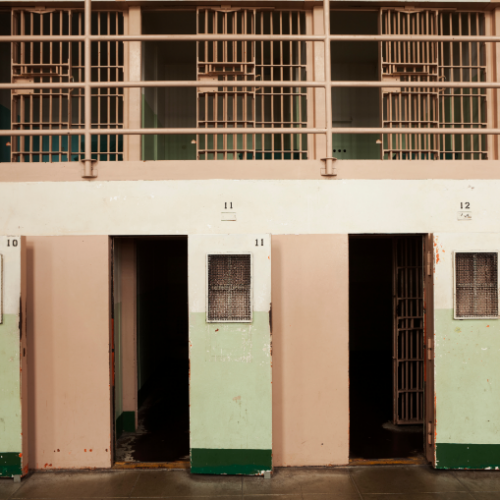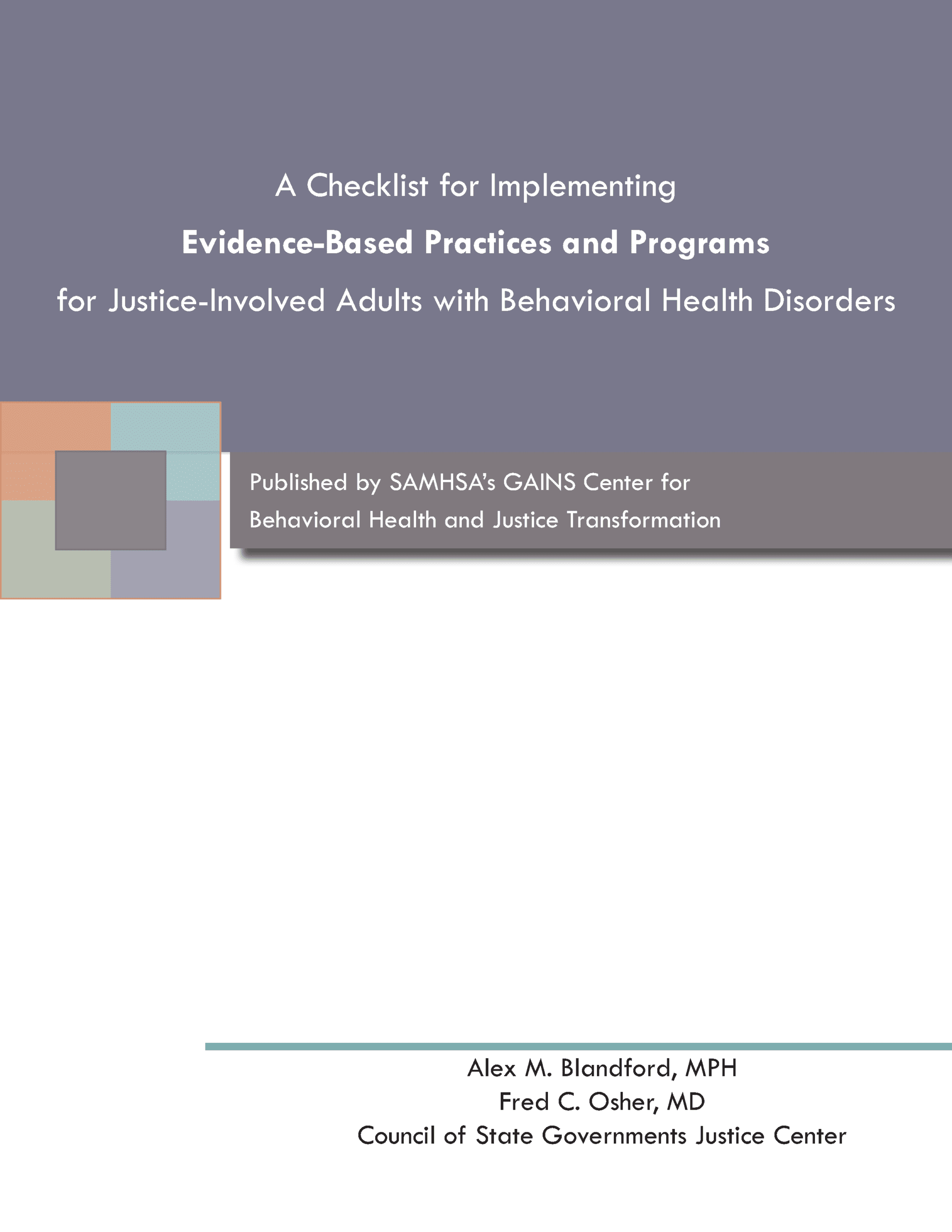A Checklist for Implementing Evidence-Based Practices and Programs for Justice-Involved Adults with Behavioral Health Disorders
This publication from the Substance Abuse and Mental Health Services Administration's GAINS Center for Behavioral Health and Justice Transformation and the Council of State Governments Justice Center provides an easy-to-use checklist to help behavioral health agencies assess their utilization of Evidence-Based Practices and Programs (EBPs) associated with positive public safety and public health outcomes.
The checklist is divided into two sections:
- Section One: Building a Cross-Collaborative System to Support the Implementation of EBPs helps behavioral health agencies determine if critical elements are in place in their systems to effectively implement EBPs and address the needs of clients who are involved in the criminal justice system.
- Section Two: Assessing and Implementing Effective Programs contains a list of EBPs and promising practices and programs for justice-involved clients. Providers should identify whether their agency uses these key practices and programs, or whether they should be prioritized for future implementation.
A positive school experience, where a child feels secure, is essential for their well-being. However, for many children…
Read More The Path to Statewide Community Crisis Response in New Jersey: A Community Advocate’s Perspective
Read More
The Path to Statewide Community Crisis Response in New Jersey: A Community Advocate’s Perspective
Read More
 Supporting Children of Incarcerated Parents: Reimagining School and Community Collaboration
Supporting Children of Incarcerated Parents: Reimagining School and Community Collaboration
A positive school experience, where a child feels secure, is essential for their well-being. However, for many children with incarcerated parents—one in 14 in the U.S.—school can feel far from safe due to stigma, trauma, and a lack of understanding.
Read More Bridging Communities and Correctional Systems: Q&A with CSG Justice Center Advisory Board Member Commissioner Nicholas Deml
Read More
Bridging Communities and Correctional Systems: Q&A with CSG Justice Center Advisory Board Member Commissioner Nicholas Deml
Read More
 Assigned to the Cloud Crew: The National Incarceration Association’s Hybrid Case Management for People with Behavioral Health Needs
Assigned to the Cloud Crew: The National Incarceration Association’s Hybrid Case Management for People with Behavioral Health Needs
When returning to their communities from criminal justice settings, people with behavioral health needs face barriers in accessing basic needs—including food, housing, employment, transportation, education, clothing, and substance use and mental health services—which increases their risk of experiencing a crisis.
Read More Meet the Medicaid and Corrections Policy Academy Mentor States
Meet the Medicaid and Corrections Policy Academy Mentor States
New Hampshire Department of Corrections Commissioner Helen Hanks presents at the Medicaid and Corrections Policy Academy in-person meeting.
Read More











